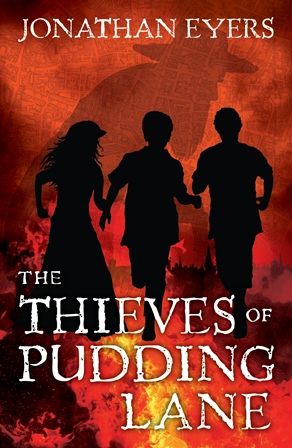So you’ve finally done it. After years of submitting manuscripts to agents, publishers or dentists you learn you share with either of the above, and then collecting enough rejection letters to wallpaper a very sorry-looking writing room, you finally grab an agent or editor’s interest. You’re over the moon. You go skipping through the streets (even though it’s raining), dancing with strangers (even though they’re strangers, and this is London).

And then on rereading the lovely, lovely email for the twentieth time, that sentence near the end which didn’t even register earlier starts to echo in your head instead: “I want to make a few editorial suggestions that I think would improve the book, but we can discuss that next week.”
You spend a sleepless night second-guessing what they mean, including a terrible hour between 2 and 3am where you convince yourself they want to make your wise old woman character a cheeky teenage boy instead.
Of course, you probably have nothing to worry about. But that largely depends on how you approach being edited.
Perhaps ‘being edited’ is the wrong phrase. It suggests editing is something that happens to you, rather than with you. Because editing should be another step in the creative process, a collaborative one this time, where someone who loves your book and wants to make it perfect gives you their advice freely, willingly, and all manner of other appealing adverbs.
We writers become very attached to our work. After all, we spend hours and hours alone with only our characters for company. Our finished manuscripts are our babies, and at some point in our writing careers we have probably all had the same reaction to someone who has made a suggestion after reading our work: “How dare you? Who are you to point at my wonderfully perfect child and say she might be better with greener eyes? Be gone with you!”
But to stretch this analogy to breaking point, at some point you have to let your baby go out into the world on his or her own, and out there they will meet all kinds of positive influences that will shape who they become. The only alternative is that you lock them up at home, where nobody will get to meet them. And that’s just weird.
The first step towards having a positive editing experience is to accept that, precisely because you have such an intimate relationship with your work, you probably aren’t best placed to view it objectively. A good editor (and that includes most literary agents now too) will not just give you brilliant practical advice, they will help you take a step back to see your book from a new angle. That’s a skill every writer should develop, and you should look upon editing as an opportunity to practice it and get better at it.
The editor of my children’s novel, The Thieves of Pudding Lane, decided that an entire scene should be cut from near the end. It was only a little scene, one I hadn’t even planned, but which in the spur of the moment seemed appropriate. It gave a minor character a redemptive end. But my editor found it jarring, because it switched to the perspective of a character who had been part of the story throughout, but not one from whose perspective it had been told until that point. And all this was happening when the main characters were elsewhere, in the middle of the big finish. So the scene was cut. The novel hasn’t really lost anything from its excision.
Nobody becomes an editor overnight, so as well as accepting your own limitations, appreciate that your editor only got the job in the first place because they have a talent for it. Editing a book is a great skill, deserving of respect, but is undervalued because, by its very nature, it’s invisible – you only think about the editor if a book has been sloppily edited, just as you only remember proofreaders even exist when you find a glaring typo that slipped through onto page 177 of a published novel. And if you know a publisher guilty of such heinous crimes, chances are they’re not the ones with their mitts on your book, are they?
Related to this, then, is trust. At the very least, you should trust that if an editor had the good enough taste to take your book on, then it’s probably worth you trusting them to have good enough taste to know what’s best for it. It’s very unlikely your editor is going to suggest turning your wise old woman character into a cheeky teenage boy, but if that one does indeed come up, listen to the reasons. They may be enlightening. They may give you new ideas.
When I took creative writing modules at university, I used to read the novels the tutors had written. It helped me see where they were coming from, as creative writers themselves, and that helped me trust them, even when we were coming from different places. I approached being edited in a similar way. I read another children’s novel my editor had edited (she knows this). However, she’s also a writer herself, and had just published a novel under a pen name, so I read that too (she doesn’t know this). Even though neither novels were like mine, I could see that The Thieves of Pudding Lane was in good hands, with someone who had a good sense of character, story, pace and place.
Ideally, your editing experience will be Socratic, bouncing ideas off someone who, after yourself, is more creatively engaged with your novel than anyone else. Indeed, view your editor as a teacher rather than a critic and you will probably get far more out of the experience than they will.
Jonathan Eyers blogs about books and writing on his website and you can also follow him on Twitter. You can read more about The Thieves of Pudding Lane here.
Comments